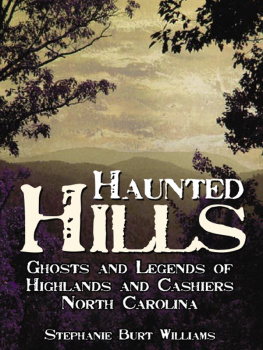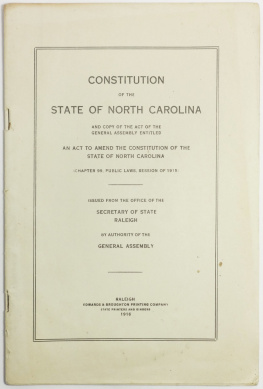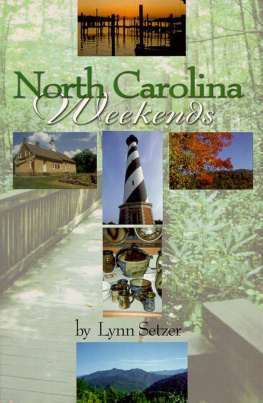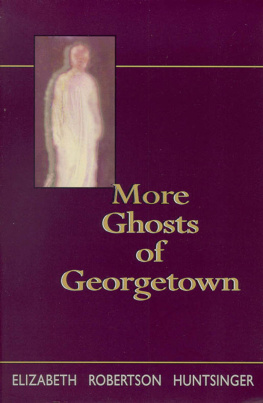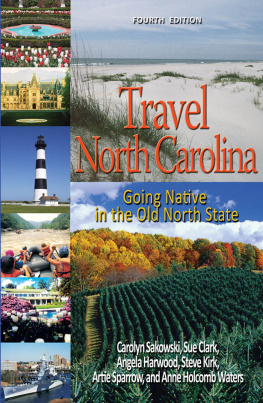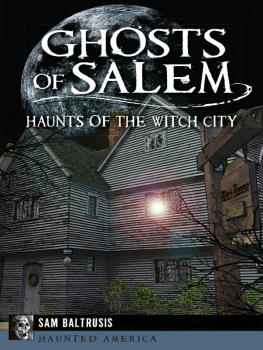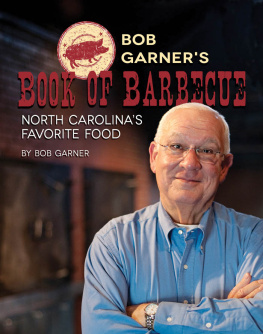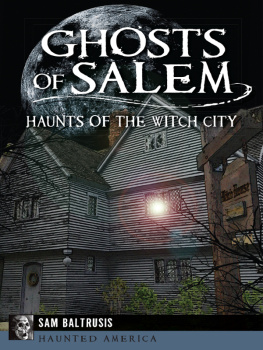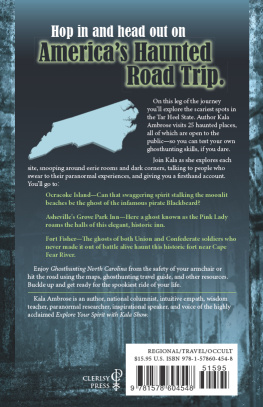IN MEMORIAM
This book is also dedicated to my grandmother Elizabeth Kennedy Simon Thomas, or as my cousins and I called her, Libba. Libba passed away on Sunday, September 15, 2013, before I knew this project would come to pass, but I know she would have been proud to see me pursue it. Of all the people I have had in my life, Libba was one of the most influential in setting an example of what it means to appreciate literature. She was a true lover of books, as indicated by her varied and prolific collection of them, and I know she would have been thrilled to hear that I meant to add one of my own to her shelves.
I thought about Libba a fair amount during the composition of this book. I heard back from The History Press about moving forward with the project just six and a half weeks after Libba passed away, and thus, I could not help but have her on my mind. That said, there are a lot of elements in Ghosts of Old Salem, North Carolina that I know would have fascinated my grandmother.
Before attending Libbas funeral, we, the family, met that morning at the funeral home. This particular funeral home (Pearsons on Breckenridge Lane in Louisville, Kentucky) happened to be moments away from one of my grandmothers favorite establishments in the city, Plehns Bakery. Plehns is everything that a local bakery should be: every baked good is hand-crafted and fresh as can be; no matter what day or time you are there, it is likely youll see somebody you know; and the service staff remembers who you are, even if you have been away a month or two. The bakery dates back nearly a century, having been established by Kuno Plehn, a native of Germany, in 1922.
When Libba heard that one of my many assignments as an employee of Old Salem Museums and Gardens (OSMG) was to assist in the baking of Winkler Bakerys many fine offerings, she wasso to speaktickled. One specific detail that seemed to amuse her was the image of me shaping my hands into talon-like forms to cover unbaked sugar cake with divots, in which an indescribable, delicious mixture of butter, sugar and spices settles during the baking process. As Plehns is in Louisville, so, too, is Winkler Bakery a must-stop for those who visit Old Salem.
Another fitting comparison is the fact that Winkler Bakery was established by an immigrant as well. In 1807, Swiss native Christian Winkler bought the building in which Winkler Bakery is still located today and began making the baked goods for which Old Salem is known. Many recipes used in the bakery today descended straight from those of Christian Winkler.
On our way from the funeral home to the church, we passed Seneca Park, one of several parks within Louisville named for a Native American tribe. It brought to mind a map of the United States that Libba had given me when I was a boy. Instead of showing fifty states, the country was broken down into areas showing where each Native American tribe once resided.
The map may have been an acquisition made during a trip she took in the latter part of her life in which she retraced, in part, the journey of Lewis and Clark. Her interest in history was so fervent that she took numerous photos for me of the exact sights Lewis and Clark had taken in along their journey and wrote down tidbits about their adventure. It was always a source of pride for her that, as we think of it here in Louisville, Lewis and Clark, in fact, started their journey across the west in Louisville. The two explorers did, after all, stop in Louisville to see Clarks brother, George Rodgers Clark, before moving west to St. Louis and formally starting their Jefferson-commissioned expedition.
That said, Libba found the story of Salems Moravians to be a source of fascination, too. Like Lewis and Clarks trek, the migration of the Moravians halfway down the eastern seaboard into North Carolina was no small feat. While Old Salem now appears as a paragon of order and architecture, one can only imagine what a wild woodland it must have been when Salems first settlers arrived.
Of course, an important part of Salems establishment was the ability it lent the Moravian church to reach out to the Native Americans in the Piedmont area to share their Christian faith. Like the map Libba brought back for me, one wonders if the Moravians diagrammed the tribes around them in a similar way.
Not far from Seneca Park, our caravan then passed in front of an important landmark from my grandmothers life, the campus of the Ursuline Sisters of Louisville. Just like some of Salems Moravian immigrants, the Ursuline sisters who established a Louisville presence were also natives of Germany. The sisters migrated to Kentucky to heed a call to be teachers at Louisvilles St. Martin of Tours parish school. They first established a convent and boarding school in the same neighborhood as St. Martin, but as the community of sisters grew, as well as their commitment to Catholic education, the sisters started developing the campus in 1877 that our caravan would pass on the way to Libbas funeral.
The campus was a touching thing to drive by that morning because of the impact that the Ursulines had made in the life of my grandmother. Libba and my grandfather Frank had sent their children to school on the Ursuline campus, both to Sacred Heart Model School and Sacred Heart Academy, and had seen them achieve life milestones like their first Communion and confirmation there. Though I did not attend school on the campus, even I spent time there in my youth, taking piano lessons from an Ursuline sister seated by my side at an old piano.
Of course, the mission of the Moravians in Salem shows many similarities to that of the Ursulines. Granted, the Ursuline sisters were part of the Catholic Church from which the Moravians had broken away, but it is interesting to me the way that both groups intertwined their faith and education and how both pursuits were made priorities. Just as Sacred Heart Academy, the high school established by the Ursulines in 1877, is still an all-female school preparing young ladies for college, so, too, is Salem Academy in Old Salem. Libbas respect for faith, education and tradition as expressed in her support of the Ursuline sisters mirrored that same respect for those things as exhibited by the Moravians.
After passing the Ursuline campus, our procession continued down Lexington Road, and minutes later, we passed a significant symbol of Libbas interests in the world, the Antique Market at Distillery Commons. If there was a type of collecting that interested Libba as much as books, it was, without a doubt, collecting antiques.



